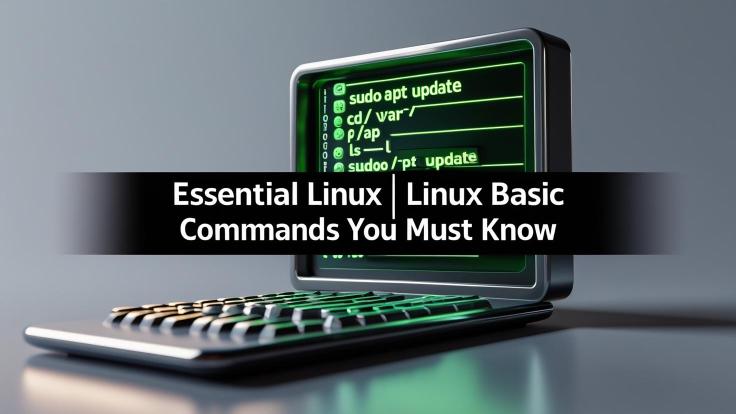Linux Ubuntu Commands Cheat Sheet
- Posted on July 21, 2024
- Cheat Sheet
- By MmantraTech
- 798 Views

I always get confused which linux command to use when. So i decided to make this list. It's simple and should help even if you just started.
Most Useful Linux Basic Commands with Examples
Update and Package Management
Linux basic commands for packages
# Update list of packages
sudo apt update
# Upgrade installed packages
sudo apt upgrade
# Install a package
sudo apt install <package_name>
# Remove a package
sudo apt remove <package_name>
# Search a package
apt search <package_name>File and Directory Management
Navigate and organize files easily
# List files and folders
ls
# Change directory
cd <directory>
# Make new directory
mkdir <directory_name>
# Remove a directory
rmdir <directory_name>
# Copy files
cp <source> <destination>
# Move or rename file
mv <source> <destination>
# Delete a file
rm <file_name>File Permissions & Ownership
Control who can access what
# Change file permissions
chmod <permissions> <file_name>
# Change file ownership
chown <user>:<group> <file_name>System Monitoring
Linux commands to check system health
# Disk usage
df -h
# Memory usage
free -h
# List processes
ps aux
# Real-time CPU usage
top
htopNetworking Commands
Check connectivity and ports
# Show IP address
ip a
ifconfig
# Ping a host
ping <host>
# Check open ports
netstat -tulnApache Web Server
Basic apachectl commands
# Restart Apache
sudo systemctl restart apache2
# Stop Apache
sudo systemctl stop apache2
# Start Apache
sudo systemctl start apache2
# Check Apache status
sudo systemctl status apache2User Management
Manage users in your system
# Add user
sudo adduser <username>
# Delete user
sudo deluser <username>
# Change user password
sudo passwd <username>More Package Commands
Extra Linux basic commands for packages
# List all installed packages
dpkg --list
# Show package details
apt show <package_name>
# Clean cache
sudo apt autoremove
sudo apt cleanLog Files
View and tail logs
# View a log file
cat /var/log/<log_file>
# Follow real-time logs
tail -f /var/log/<log_file>Customize Linux Prompt
Make your terminal prompt cool
# Change your bash prompt
export PS1="[\u@\h \W]\$ "More Handy Linux Commands
Commands I use daily
# Search text in files
grep "search_term" filename
# Show command history
history
# Clear terminal screen
clear
# Check system uptime
uptime
# Shutdown system
sudo shutdown nowIn my experience, learning these Linux basic commands saved me a lot of time during server work and debugging. Whether you're a beginner or a pro, knowing these helps a lot in everyday tasks.



Write a Response